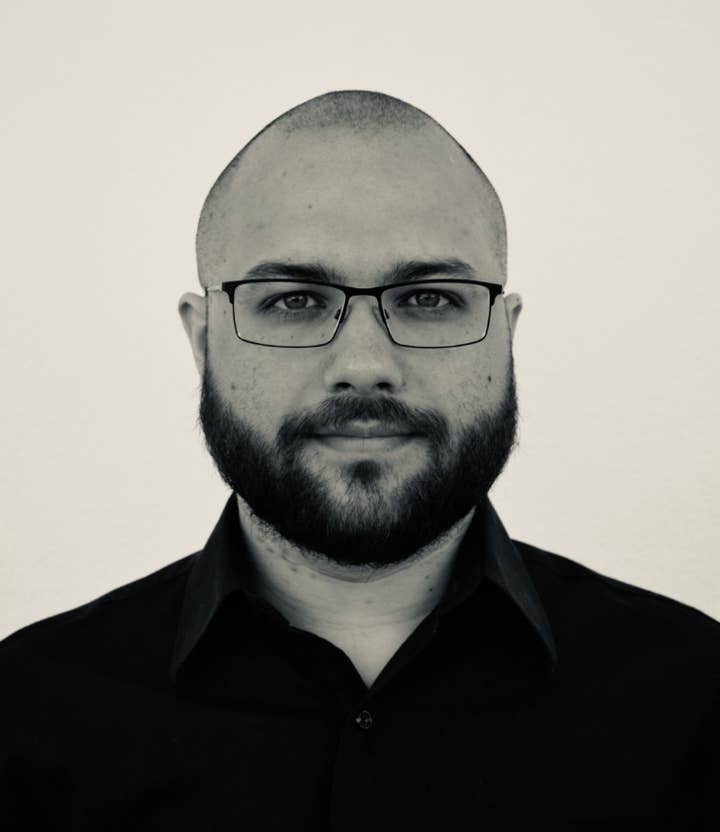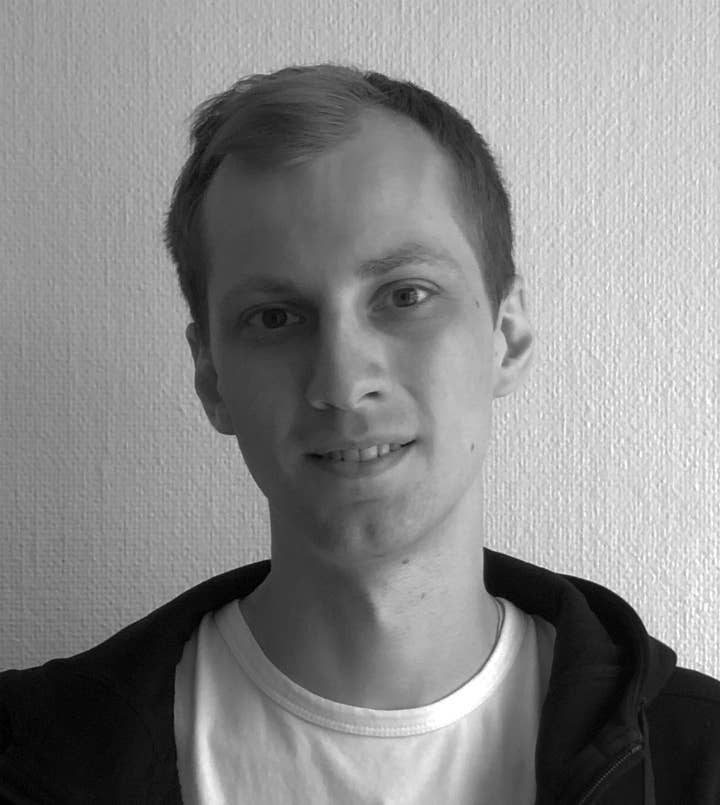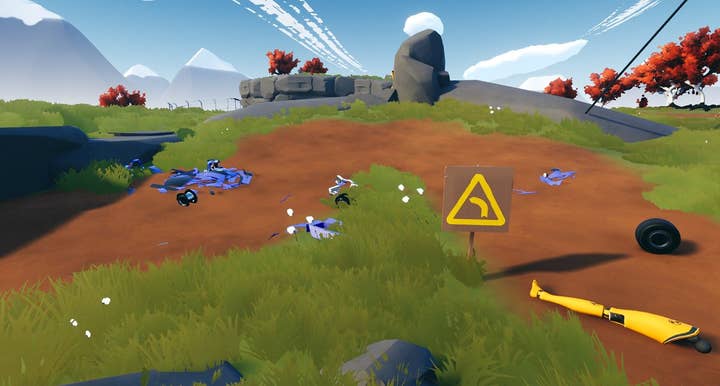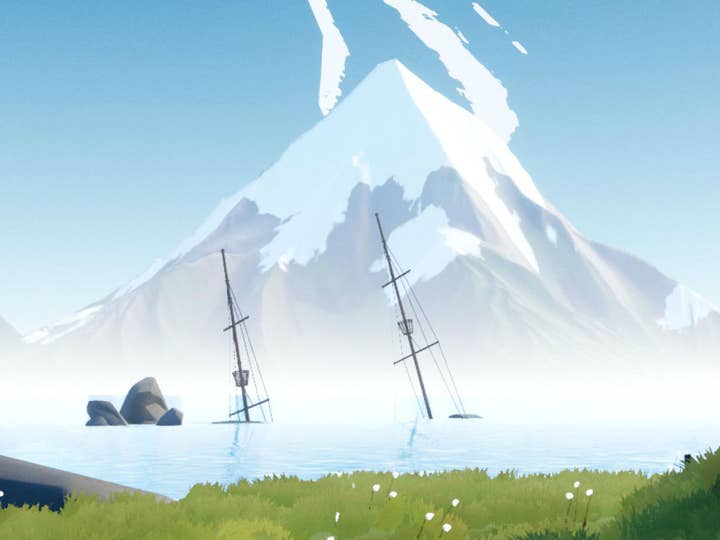"Employee health, employee happiness, and then the game -- in that order"
Michael Paixao on winning a legal battle against former employer ZeniMax Media to create a better work culture with Bad Yolk
The last few years have not been kind to the image of AAA development. At one time, working on huge productions at the industry's most famous studios would be close to a dream for many aspiring creatives, but the relentless flow of exposés on working conditions, crunch and burnout at those same companies has rather tarnished the appeal. More so than ever before, there is an acceptance that working on the very biggest games can often mean an equally substantial compromise on work-life balance.
If that is the new perception from the outside, however, for those who have spent a career making AAA games it is simply an established reality. That was the case for Michael Paixao and Joel Jonsson, both technical artists at Wolfenstein developer MachineGames, who had grown tired of "the overtime, the work, the working conditions overall."
"I've been in the AAA industry for many years, and honestly I was starting to get burned out," Paixao says, speaking exclusively to GamesIndustry.biz. "I just needed to change the pace and get away from that. It was really unhealthy, a lot of times. That was one of the big motivators for me and Joel when we left [MachineGames]. We decided to try and do it better, and treat people right. We feel that good games will come out of that."
"I've been in the AAA industry for many years, and honestly I was starting to get burned out"
While Paixao is speaking about MachineGames when he talks about working conditions, he makes it clear that the issue is not specific to the Swedish developer or the other studios owned by ZeniMax Media. This is not another NetherRealm, but that is a problem in itself; the kind of work that can bring someone to the point of burnout is all too common when making AAA games.
"In all the companies I've worked for, it's pretty much standard fare a lot of the time," Paixao continues. "I remember earlier in my career the dread of, 'Well, if you can't do it, we can find somebody else who'd like to do it.' Almost like a veiled threat.
"We still have tons of friends at MachineGames, and we still like them. It's just that, the stuff that happened afterwards, we felt like it was more the corporate side of ZeniMax."
Ah yes, the "stuff that happened afterwards." The story of Bad Yolk -- the company Paixao and Jonsson started after leaving MachineGames -- would be just one example of talented AAA developers seeking a better and more sustainable way of working. A heartening story, but one that is becoming commonplace.

What makes Bad Yolk's story remarkable is a legal challenge brought against the fledgling company by, as Paixao described it, "the corporate side of ZeniMax." The allegation was rooted in a non-solicitation clause in MachineGames' employment contracts, and while the ensuing court case was disruptive to the early life of Bad Yolk, Paixao doesn't seem entirely surprised.
"Isn't getting sued by ZeniMax like a bucket list thing in the industry?" he jokes. "[The clause] said that if you did anything that involves hiring someone who works with, or previously worked for, or contracted with [Machinegames], you're not allowed to touch them. They were blocking people from even having the ability to leave of their own free will and join us.
"The way Swedish law is formed, they want to treat people fairly. It's a really big point in Swedish law that contracts should be fair. A lot of times it will look at other Scandinvian countries -- like Denmark and Finland -- just to see what other rules have been set.
"If you look at, for example, non-competes in those other countries, they basically have to compensate for having that kind of clause in, and it's usually around people who are way more important to a company; like a founder, or something along those lines. It's just never been tried in Sweden before."
"Isn't getting sued by ZeniMax like a bucket list thing in the industry?"
In Sweden, Paixao says, such cases are stopped in "the entry level courts" and dismissed, but on this occasion it went higher -- much higher. Bad Yolk's dispute was ultimately heard in what Paixao says is equivalent to the US Supreme Court for labour disputes. And not only did the verdict go in Bad Yolk's favour, leaving it free to recruit former colleagues from MachineGames, it also had a lasting impact on Swedish law.
"It set a legal precedent for the country, very specific to non-solicitation and that being more balanced," he says. "They put a cap on [the non-solicitation period], to a maximum of six months. So it's not even as long as it was before."
It is tempting to regard the legal case as a clash of cultures; the legal and social expectations of the United States, where ZeniMax is based, and those of Sweden and Scandinavia as a whole. For Paixao and Jonsson, though, the court case is the past; it is not the reason they wanted to start their own studio, even if it does seem to be part and parcel of the kind of working environment they were so ready to leave behind.

"The biggest reason we wanted to start a studio is that we want to do things differently in the games industry," Paixao says. "When we formed the company and went out looking for investment, we made it very clear that the most important thing for the company is employee health, employee happiness, and then the game -- in that order. Non-negotiable, in that order. We feel that if people are healthy and happy, the project will get done."
The strain of the work at MachineGames was "not anything special," Paixao says, and it was no different when he worked at Ubisoft Massive as part of the team that made The Division. However, the ubiquity of this intense working culture in AAA doesn't make it any more sustainable for the people involved, and Paixao and Jonsson believe they can produce high quality games without those same pressures by starting from scratch.
"It's not one single problem [that leads to crunch]; It's many small problems that stack up," he says. "Starting with the planning phase, if a project gets over-scoped you have to be quick about then changing the scope and adjusting so you can still reach those deadlines. You also have to give a time that is reasonable to get to those deadlines.
"Then as you move forward with a project, you get feature creep that can be an issue. You then have other problems, like the expectations from the fans. If you show a teaser and you aren't being honest, the hype builds up and you feel pressured to follow the hype. There are so many things that can come together and potentially cause issues."
"If you see someone doing too many hours, you have to speak up. Everybody needs to look out for everyone else"
Paixao and Jonsson are technical artists by background, so they specialise in creating tools and workflows that improve speed and efficiency. Getting better results from fewer people and less time invested will be a vital skill when running a small studio, and it is also the antithesis of what makes AAA work culture so problematic.
"It comes down to a question of numbers: we need to get this much out, we need this much content, so you put more people on it," Paixao explains. "You're scaling up the complexity. [The solution] really comes down to simplifying that process.
"I remember when I was at Ubisoft, it was originally on The Division, and early on in that project we were about 20 or 30 people, and then they started scaling up when they had the first reveal and started showing the game... In the end you don't need that many people, but at the same time it creates new problems. Where do you find all those people? You have inexperienced people that come in and have to learn the project, so you need more people to manage them. It creates this scaling complexity."
Bad Yolk games already has a team of 11 people, all of whom have worked on large AAA productions. According to Paixao, though, finding that kind of experience wasn't the challenge when it came to recruiting. The real difficulty was in finding people who wouldn't bring the habits and assumptions of AAA development with them; people who were ready for something different.

"If you see someone doing too many hours, you have to speak up. Everybody needs to look out for everyone else. We have to make sure people take their vacation time. We make sure our work days are short; we're focused on having a six-hour work day rather than eight hours.
"We plan around knowing that people are going to be sick, that people will take vacations. We put that in our time estimates, so we do have the ability to make the best product but without people getting burned out and tired."
Bad Yolk is based in Uppsala, Sweden, the same town as MachineGames, but it may be some time before it is a significant rival for recruiting local talent. Ultimately, there is an ambition to create AAA games at the studio, but to do so on its own terms; that means longer dev cycles, a smaller and more focused team, and only taking on a larger project when the culture is able to support it.
"It's about making plans based on what you have available, and what your goal is," Paixao says. "Our goal is to make a good foundation for a company, so we're starting with a smaller, more indie sized game. I don't know what the term is. Triple-I? it changes every week.
"But we're building a smaller game, which will be something we can ship with the team we have, and then we have plans for a larger project that will be closer to a AAA title later. But to start, we're taking our AAA experience and applying it to a smaller project.
"Once we grow larger, the people that are part of this core startup team will become our leaders down the line. We want to make a larger company down the road, but for now, we need to make this solid foundation."

